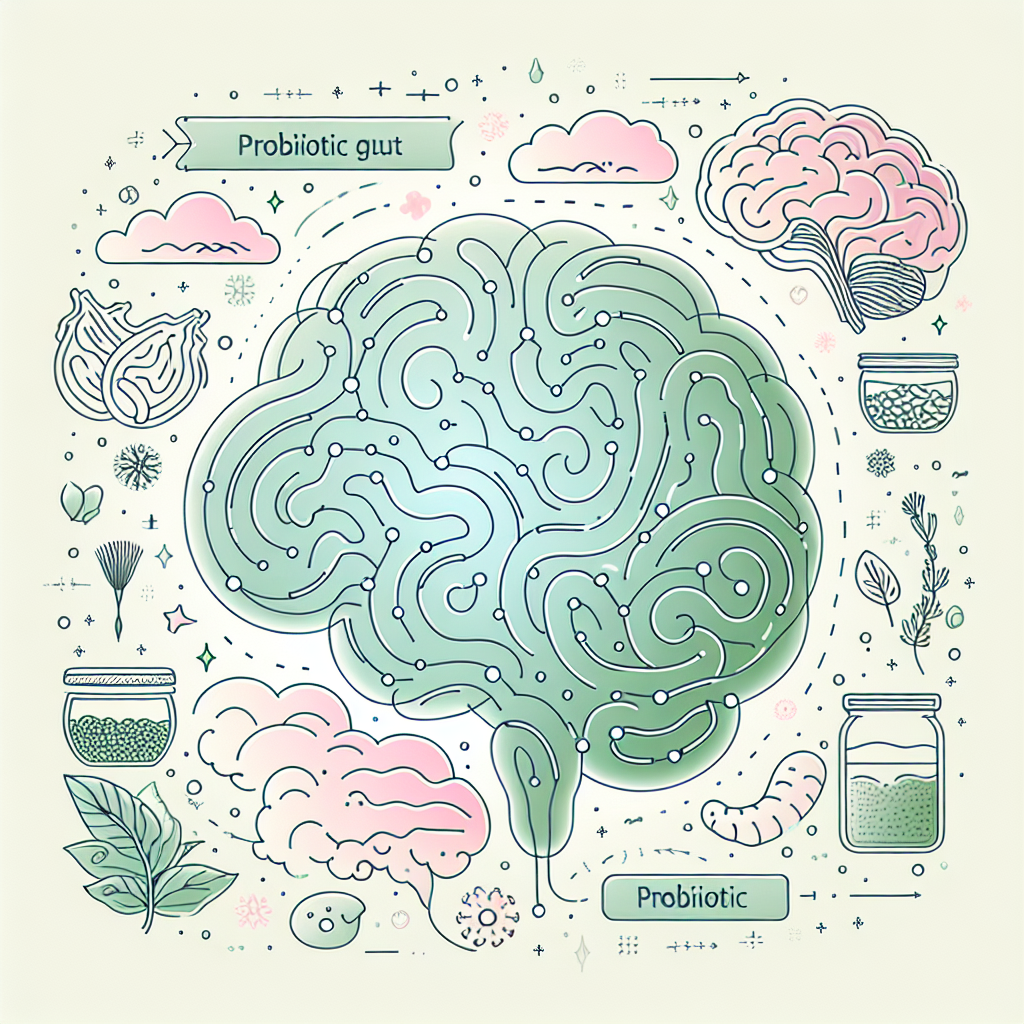### The Remarkable Influence of Probiotics on Mental Health: A Closer Look
When people think of probiotics, they often associate them with digestion, gut health, and possibly yogurt commercials. Scientists, however, are increasingly uncovering a fascinating connection between probiotics—those beneficial bacteria—and mental health. This promising area of research, known as the “gut-brain axis,” suggests that the key to better mental health might lie in your gut.
## What are Probiotics?
Probiotics are live bacteria and yeasts that provide health benefits when consumed in suitable amounts. They are found extensively in fermented foods such as natural yogurt, sauerkraut, and tempeh. Today’s medical community also recognizes the role of probiotics in restoring and maintaining a healthy gut microbiome, enhancing immunity and reducing inflammation.
## The Gut-Brain Connection
What happens if we told you that your intestines and brain “talk” to each other continuously? The gut-brain axis refers to the two-way communication link between the cognitive and emotional centers of the brain and the intestinal functions.
The gut is often referred to as the second brain because it contains a large number of neurons. Further, the gut and the brain communicate constantly via the nervous system, hormones, and the immune system. What affects the gut, therefore, can also impact the brain.
## Probiotics and Mental Health
Recent research points toward probiotics being potential game-changers for mental health. By promoting gut health, they can indirectly affect the brain and influence mental health. Here’s how:
1. **Reducing inflammation:** Certain types of mental health issues, such as depression, have been linked to inflammation. Probiotics can reduce gut inflammation, which in turn may lessen brain inflammation and improve mood.
2. **Producing neurotransmitters:** Gut bacteria produce an array of neurotransmitters, a kind of chemical used by the nervous system to transmit messages between neurons. For instance, they produce serotonin, often termed the “happy hormone,” as it helps regulate mood.
3. **Improving nutrient absorption:** A healthy gut absorbs nutrients more effectively, thereby ensuring the brain gets vital nutrients it needs to function well.
## Current Research & Future Implications
Many scientific studies have observed the positive effects of probiotics on mental health. In a review of 10 studies, probiotics were found to significantly decrease symptoms in people with mild to moderate depression.
Moreover, in a study published in the _”Journal of Neurogastroenterology and Motility,”_ probiotics significantly reduced anxiety in patients with Irritable Bowel Syndrome.
However, it’s important to note that while these studies provide promising evidence, research in the field is still in the early stages, with long-term effects and the most effective strains yet to be identified.
## Conclusion
In conclusion, while probiotics might not replace traditional mental health treatments, they are clearly a promising ally. Alongside a balanced diet, regular exercise, proper sleep, and medical treatment when necessary, the incorporation of probiotics can bolster your gut health and mental well-being.
Remember, when starting new dietary supplements such as probiotics, it’s always wise to consult a health professional. Here’s to a happier and healthier gut-brain connection!
_References available upon request._
**Disclaimer:**
This article is written for informational purposes only and should not be considered as medical advice. Always consult with a healthcare professional before starting any new treatment or diet plan.


